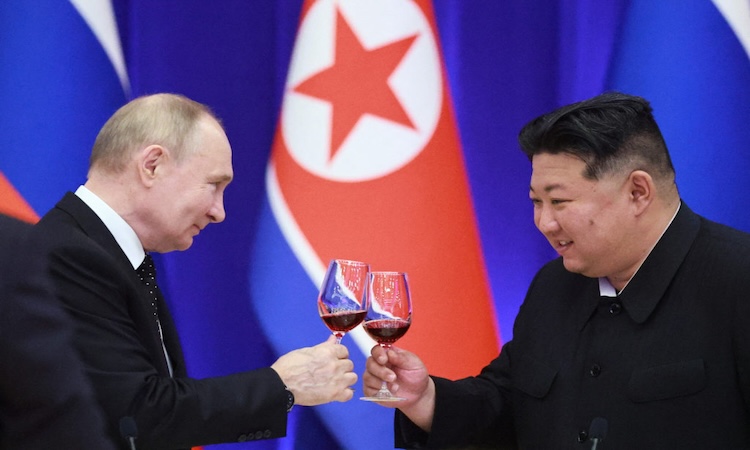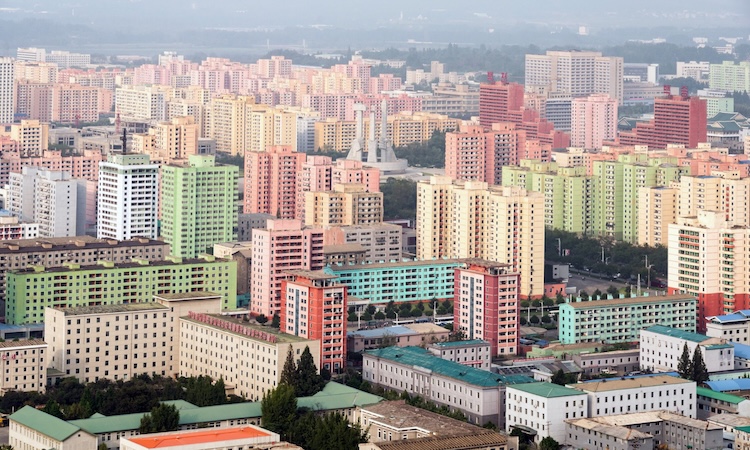The following resolution was passed unanimously by the tenth party congress of the CPGB-ML.
*****
Congress notes the following statement by Comrade Stalin, taken from a speech he made in 1924:
“Still more difficult and peculiar are the conditions under which the trade unions are developing in the west.
“Firstly, they are narrow owing to their ‘tried’ craft-union practice and are hostile to socialism, for having arisen before the socialist parties, and having developed without the aid of the latter, they are accustomed to plume themselves on their ‘independence’ they place craft interests above class interests and refuse to recognise anything beyond a ‘penny a day’ increase in wages.
“Secondly, they are conservative in spirit and hostile to all revolutionary undertakings, for they are led by the old, venal trade union bureaucracy, which is fed by the bourgeoisie and is always ready to place the trade unions at the service of imperialism.
“Lastly, these trade unions, united around the Amsterdam reformists, constitute that vast army of reformism which serves as a prop for the present-day capitalist system.” (Concerning the international situation, Bolshevik, 20 September 1924)
Congress further notes that the trade union movement has witnessed repeated heavy defeats during the recent period. In 2023 alone, the Royal Mail dispute, the nurses’ strike and the collapse of the teachers’ strike all served to highlight once again the ever-growing gulf which exists between the trade union bureaucracies and their rank-and-file membership.
Despite this, congress notes that the British trade union movement in 2025 remains the largest single organiser of working-class people in the country, despite the fact membership has fallen to roughly half what it was at its peak in 1979, and that the movement is in a far weaker state in every respect.
Congress notes that the present period of weakness and disarray has its roots in the defeat of the National Union of Mineworkers in 1985, whose members were betrayed by the class collaborationism of the Trades Union Congress, individual trade unions and the imperialist Labour party. The defeat of Britain’s most militant and best-organised union precipitated a period of rapid retreat across the board, and unions transformed their structures and core activities from an ‘organising’ to a ‘servicing’ model. This was accompanied by a shift away from industrial action and an increasing reliance on bourgeois state institutions like Acas, the courts and the European Union to oversee dispute resolution and plead for rights protection.
This congress believes that, while trade unions are not revolutionary organisations, and despite all the weaknesses outlined above, it is vital that party members should build strong and active links with the trade union movement, since it remains a vital field for popularising Marxist science amongst rank-and-file members and offers the best opportunity for bringing over most advanced and best organised proletarians to our cause.
This congress further believes that there is no benefit to be gained for our movement in trying to capture paid positions in the trade union bureaucracy. What we have every interest in doing is popularising our party’s line and programme amongst the wider union membership. Only such a practical guide to action, based on a clear Marxist analysis, can bring back a sense of class-conscious optimism to British workers, reinvigorate and guide their activity, and thus enable them to experience for themselves the very real power they possess, if only they can learn how to harness it.
Congress resolves that our members’ work within trade unions should focus on four key areas, as outlined in the party’s pamphlet Manifesto for the Crisis: Class Against Class. These are:
1. Working-class demands in response to the cost of living crisis. The period since the outbreak of the deep crisis of overproduction in 2008 has been marked by rampant austerity, state-sponsored money-printing and exceptionally high government borrowing, all in order to bail out the British banking system, which has more than once teetered on the brink of total meltdown, and which we have been told is “too big to fail” by the very same people who lecture us on the efficacy of the ‘free market’ to decide all questions.
Notwithstanding the official ‘recovery’, the deep crisis of overproduction has in reality continued unabated, manifesting itself in an economy that flatlined for 12 years before plunging once again into chaos, at which point the government used the excuse of Covid-19 to cover the 2020 bailout of the stock market. The combination of increased money-printing for corporate bailouts and subsidies with lockdown measures that created catastrophic distribution disruptions led to a prolonged period of rampant and unbridled inflation across the western imperialist bloc, including in Britain.
This inflation was further fuelled by Nato’s military and economic war in Ukraine, during which the government has printed even more money to subsidise the arms industry and the fascist junta in Kiev, and caused energy prices to spike still further by placing draconian sanctions on Russian oil.
Workers have borne the brunt of this inflation. The costs of food, rent, fuel and other essentials skyrocketed and were not offset by increases in wages, which saw a massive real-terms fall as a result. The period of 2021-3 was punctuated by disputes and strikes in all fields of the economy as workers sought redress for the sharp decline in the value of their wages. For many, such as NHS and teaching staff, this latest pay cut came on top of years of below-inflation pay increases that were imposed on state-sector workers – all part of the government’s swingeing austerity programme to ‘balance the books’ following the 2008 bank bailouts.
The party’s nine-point emergency plan, detailed in Manifesto for the Crisis, lays out a programme of measures that workers should be demanding in order to address this crisis and prevent their rapid descent into ever deeper poverty. It includes the nationalisation of all utilities without compensation, the mass building and requisition of social housing, the full renationalisation of all parts of the NHS, leaving Nato, and taking steps to raise wages and end the constant cycle of money-printing which governments of both colours have been stuck in for over 15 years.
These demands should be the foundation upon which party members build their work within trade unions, from the grass-roots level with their fellow workers in local branches, all the way up to national congresses.
2. Defy the anti-trade union laws. The trade union bureaucracies and the TUC have for decades made empty statements about the need to fight the anti-worker legal framework which has been specifically designed to ensure that no serious union struggle can ever be successful. Notwithstanding the occasional verbal protest or motion to conference, however, there has been no substantive or meaningful action to have the anti-union laws overturned.
In fact, trade union bureaucrats have acted as the enforcers of this pernicious and oppressive legislation, routinely using the excuse of ‘the law’ to frustrate the struggles of their own members. Britain’s anti-trade union legislation has enshrined this role for union leaders, and they dutifully comply. Such defeatism and class-collaboration can and must be broken by educating workers as to why these anti-unions laws exist and the role of the state and the unions in drafting and enforcing them.
We must also promote the understanding that, in times of struggle, while trade union bureaucrats may promote the idea that there is no alternative to workers taking on their employers with one or both hands tied behind their backs, there is no reason for the proletariat to accept this premise. Wildcat strike action (ie, immediate walkout by members with a ballot taken on the shop floor), if well organised and supported, is an extremely effective weapon against the predations of employers. Workers possess great power when their hands are on the levers of capitalist production, even if, after such a prolonged period of defeat and retreat, many are not fully aware of this power.
3. Break the link with Labour. The link between the Labour party and the trade unions is a vital mechanism of ruling-class control in British society. When the ruling class’s preferred party of rule, the Conservatives, becomes untenable, then the Labour party is deployed as a reliable alternative – a ‘safety valve’ through which workers are encouraged to vent their anger, since they have been taught for generations that Labour is ‘the party of the working class’.
The fable that the unions founded the Labour party and that therefore that party serves the working class has long since been thoroughly exposed. The Labour party is a loyal servant of British imperialism, and the trade unions’ financial and organisational links to Labour, far from enabling workers to control Labour party policy, are actually a mechanism for making sure the unions remain servile to the electoral interests of the Labour party, which in turn remains servile to the interests of the monopoly financiers in whose interests the British state is really run.
The more thoroughly bureaucratic the trade unions become, the better the leaders of these organisations are able to serve their Labour party masters, ensuring by backroom manoeuvres that their own members’ struggles are suppressed and curtailed, and utilising the legal framework to justify retreat after retreat. All of which inculcates a mindset of resignation and defeat that is extremely effective in demotivating members who in other conditions would be inclined towards militant activism.
The trade unions’ link with Labour is constantly reinforced by a revolving door of personnel and policy exchange. Good work in the service of the ruling class within the trade union movement is rewarded with promotion – either to some elected office or to some other well-remunerated role within the state machinery. Those at the very top of the trade union movement have a vested personal interest in maintaining the Labour link – as is evidenced by the number of former general secretaries now donning the ermine and gracing the red benches of the House of Lords.
As Marxists, our members must be unrelenting in their efforts to educate their fellow trade union members in the history and role of the imperialist Labour party, and in the role that the Labour link plays in hamstringing working-class struggle. This must include organising similarly-minded trade unionists and tabling motions for disaffiliation from Labour at every available level of their unions.
4. No cooperation with the imperialist war machine. Trade union leaders and their bureaucracies have played a critical and shameful role in supporting British imperialism for well over a century. They consistently help to promote aggressive wars, despite the terrible suffering these bring to workers abroad, and despite the fact that, in strengthening the hand of the British ruling class, they are weakening the class position of their own members.
Contemporary examples include the 2022 threat by members of Unite the Union (under the influence of hysterical British bourgeois propaganda that was enthusiastically amplified by Labour and trade union leaders) that they would refuse to unload ships owned by Russia’s largest shipping company Sovcomflot at the Flotta oil terminal in Orkney. Both the regional and general secretaries publicly supported this action, with Unite leader Sharon Graham complaining that the government was not going far enough in its economic war against the Russian people:
“I am very proud of [Unite the Union’s] members taking a principled stand to prevent Russian oil coming to our ports. But it is appalling that they have been put in this position by the [government], which is still dragging its feet on sanctions.”
In October 2023, the TUC national congress passed a most disgraceful composite motion, cynically entitled ‘Solidarity with Ukraine’. This motion, moved by the train drivers’ union Aslef and shamefully supported by the collaborationist rump which is all that remains of the National Union of Mineworkers, falsely accused Russia of authoritarianism, of suppressing trade unions, and of carrying out ethnic cleansing in Ukraine. It completely ignored the actions of the United States and its imperialist partners that had led to the war: looting the country and repeatedly subverting its democracy following the collapse of the Soviet Union in 1991; carrying out the Maidan coup and installing a puppet dictatorship in 2014; and unleashing eight years of military and fascist death-squad terror against all those who resisted the imposition of the west-backed junta in Kiev.
Trade union leaders talk incessantly about ‘solidarity with Palestine’, but aside from motions passed at conferences and the occasional wearing of a Palestine flag badge on a lapel, this solidarity amounts to precisely nothing. Quite the reverse: Unite’s Sharon Graham has openly defended arms exports to the Israeli regime and attacked Palestine solidarity supporters within her own trade union.
We must increase our efforts to explain to workers the necessity of building a mass campaign of non-cooperation with imperialist warmongering and genocide. Such a campaign would include: refusing to make or move munitions needed for the battlefields; refusing to handle or transport any other supplies or manpower; and refusing to help in the creation, print or broadcast of the media lies which soften up the public for imperialism’s wars.
And we must take every opportunity to impress upon rank-and-file trade union members the complicity of the trade union movement and the Labour party in the blood-soaked savagery of British imperialism.
Congress therefore instructs all members to:
- Read the Manifesto for the Crisis, become familiar with its contents, and take every possible opportunity to explain those contents to others.
- Join their trade union, if one is active in their workplace, or if there is potential to build a union branch amongst their co-workers.
- Become active at branch level if they are already a member, working to spread the genuinely class-conscious understanding that is contained in our programme and extend its influence amongst the organised working class.
- Take copies of the Manifesto and leaflets containing its demands to demonstrations and stalls wherever they are held, understanding that only by building up a general awareness of and broad sympathy towards such a programme can the conditions be created for its acceptance.
Congress further instructs the party leadership to:
- Hold meetings and create campaign materials to spread awareness of the history of the ‘Hands off Russia’ campaign – its goals, its methods and its successes.
- Continue to produce topical materials promoting the party programme outlined above, as and when new opportunities arise.
- Continue to do everything possible to connect our line of mass non-cooperation with the militant core of the Palestine solidarity and antiwar movements.
- Produce a new pamphlet that combines existing materials on the general strike of 1926, the miners’ strike of 1984-5 and new material on the ‘Hands off Russia’ campaign to help educate workers in the history and spirit of militant trade union struggle in Britain.
This congress reaffirms the communist view that successful experience in using its organised power to wrest concessions from the ruling class is a vital step towards building proletarian confidence in itself as a class. Our role is to assist in bringing the working class to the realisation that it is indeed the ruling class in waiting; that its problems are ultimately unsolvable while capitalist production relations persist; and that ultimately it must progress from the struggle to improve conditions for the sale of its labour-power to the struggle to abolish the wages system itself.
















